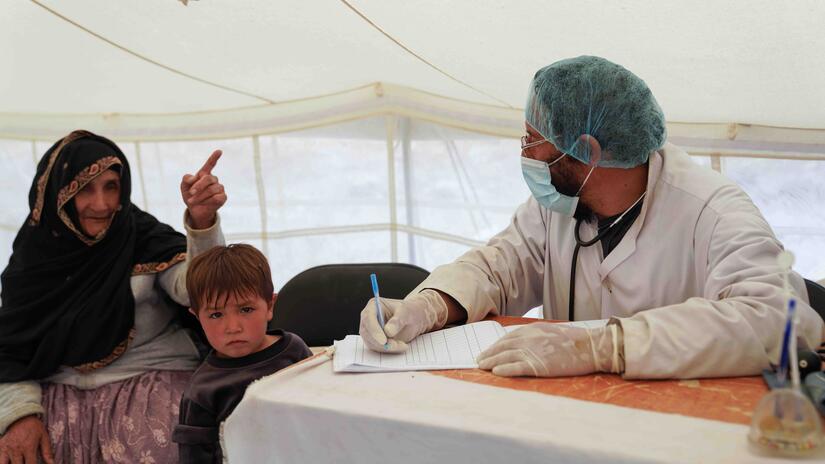
Expanding Healthcare Access for Affected Communities in Afghanistan
Descriptions:
Helmadn and Kandahar provinces are located in the southern and Kundoz is located in the northern part of the Afghanistan, the total population of Helmand province is 1472162, Kandar has 614118 and Kundoz has 1136677 population. Health in Afghanistan remains poor but steadily improving, It has been negatively affected by the nation's environmental issues and the decades of war since 1978. The Human Rights Measurement Initiative finds that Afghanistan is fulfilling 72.5% of what it should be fulfilling for the right to health based on its level of income. From 2001 to 2021, Afghanistan experienced improvements in health, with life expectancy increasing from 56 to 64 years. Maternal mortality rate was reduced by half, with the rate estimated at 638 deaths/100,000 live births and its infant mortality rate estimated at 106 per 1,000 live births in 2021. Over all in Afghanistan there are a lot of health issues and problems and need the urgent care of international organization but in Helmand, Kandahar and Kudoz provinces, conflict, instability, and limited healthcare infrastructure significantly impact public health, leading to high rates of disease, maternal and child mortality, and malnutrition. Helmand, with its remote and conflict-prone areas, often experiences disruptions in healthcare access. The province faces high rates of chronic diseases, maternal and child health issues, and a general lack of medical facilities. Kandahar has a mix of public and private healthcare facilities. The Kandahar Regional Hospital is a significant medical center, but the overall healthcare infrastructure remains underdeveloped compared to international standards. Access to healthcare services can be limited, particularly in remote and conflict-affected areas. Mobile clinics and health outreach programs are crucial in providing care to underserved populations. Kunduz faces challenges similar to those in Helmand and Kandahar, including conflict, limited healthcare infrastructure, and high rates of disease and malnutrition. Mobile health clinics are a vital solution for delivering healthcare services in Helmand, Kandahar, and Kunduz provinces, each of which faces unique challenges related to conflict, geography, and healthcare infrastructure. Mobile clinics extend healthcare services to remote and underserved areas, improving access for populations who might otherwise go without necessary medical care. They provide critical support during emergencies and crises, delivering immediate care and supplies where they are most needed. Regular visits help ensure ongoing care for chronic conditions and follow-up treatments, contributing to better long-term health outcomes. By visiting local communities, mobile clinics build trust and encourage people to seek medical help, which can lead to better health practices and outcomes. In summary, mobile health clinics in Helmand, Kandahar, and Kunduz are essential for overcoming the barriers to healthcare access in these regions. By providing critical medical services and supplies directly to the communities, they play a crucial role in improving public health and supporting overall well-being in challenging environments. Problem Statement: Limited access to essential healthcare services poses a significant challenge for residents in rural areas of Helmand, Kandahar, and Kunduz provinces in Afghanistan. This lack of access contributes to a range of negative health outcomes, particularly for vulnerable populations. • Geographic Barriers and Security Concerns: Vast rural areas with limited healthcare facilities, challenging transportation due to distance and infrastructure limitations, and ongoing security concerns in some regions significantly hinder access to healthcare. • Shortage of Medical Supplies and Personnel: Existing healthcare facilities often experience critical shortages of essential medical supplies, medications, and qualified healthcare personnel, limiting their capacity to diagnose and treat patients effectively. • Deteriorating Health Outcomes: Limited access to preventative care, vaccinations, and essential maternal and child healthcare services contributes to high rates of preventable illnesses, increased maternal and child mortality, and a growing burden of chronic diseases.